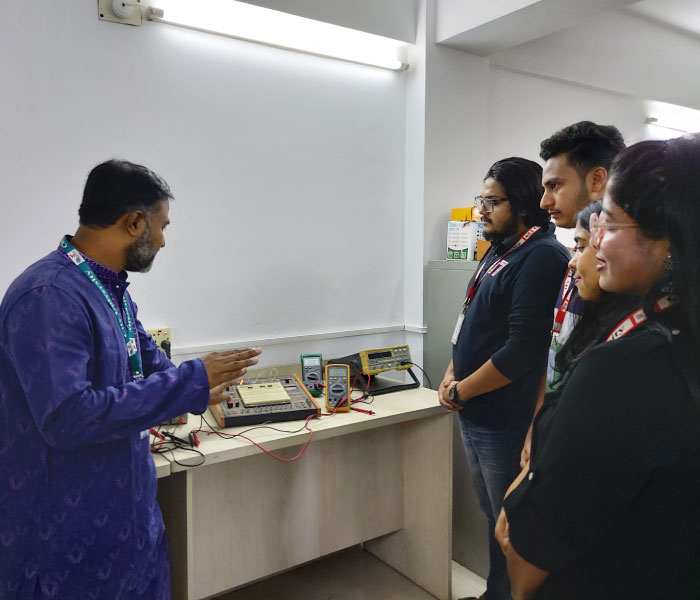1. Microprocessor & Control System Laboratory offers a stimulating environment for students to delve into the world of microprocessors and embedded systems. Through practical learning, research opportunities, industry collaborations, and entrepreneurial support, we aim to equip students with the skills and knowledge needed to excel in this exciting field and contribute to technological advancements. Our laboratory is equipped with a comprehensive range of microprocessors, development boards, embedded systems, sensors, and peripherals. These resources enable students to design, prototype, and implement various applications using microcontrollers and embedded systems. Through project-based activities, workshops, and experiments, participants can gain valuable insights and develop practical skills in microprocessor programming, system integration, and hardware-software co-design. It focuses on a wide range of applications, including IoT (Internet of Things), robotics, automotive systems, medical devices, consumer electronics, and more. Our research aims to develop solutions that improve the functionality, reliability, and efficiency of embedded systems in these domains.
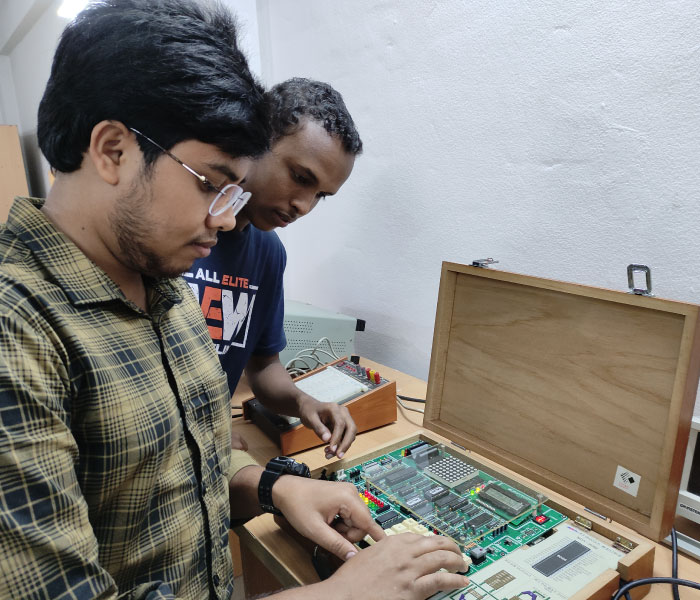
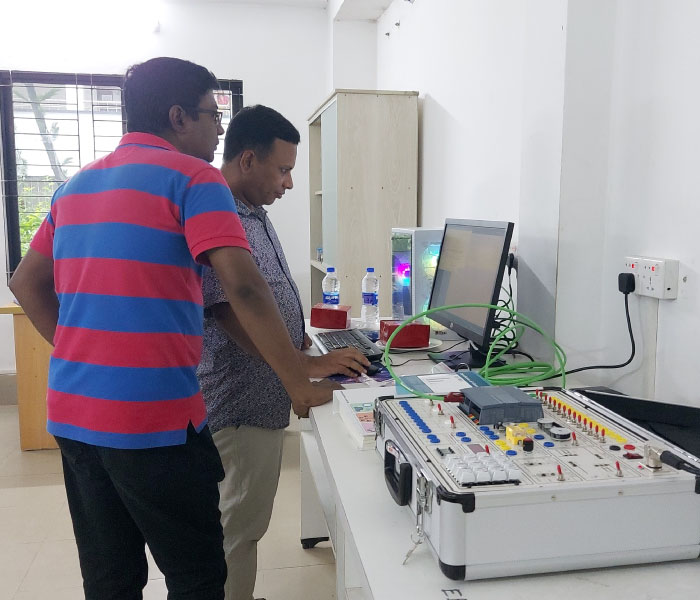
2. The Communication Laboratory is equipped with a wide range of communication systems and equipment, including signal generators, oscilloscopes, spectrum analyzers, network analyzers. This comprehensive infrastructure enables students to explore various communication protocols, modulation techniques, and signal processing algorithms. We believe in the importance of practical, experiential learning. The Communication Laboratory offers students the opportunity to apply theoretical knowledge gained in the classroom to real-world scenarios. Through hands-on experiments, students can understand the principles of communication systems, analyze data, and troubleshoot issues, thereby enhancing their problem-solving abilities.


3. Electrical Circuit Laboratory equipped with modern tools and equipment, our lab offers a dynamic learning environment where students can gain practical skills and deepen their understanding of electrical circuits. We believe in the importance of practical learning to reinforce theoretical knowledge. In the Electrical Circuit Laboratory, students engage in hands-on experiments and projects that cover fundamental concepts such as Ohm's law, Kirchhoff's laws, network theorems, and circuit analysis techniques. Students have opportunities to work in teams, exchange ideas, and solve complex circuit design problems collectively. Collaborative projects foster teamwork, communication skills, and the ability to approach challenges from different perspectives.
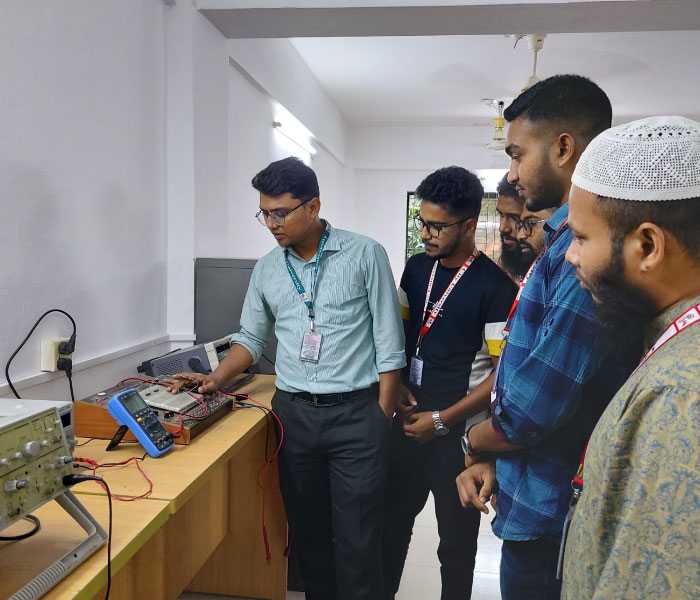
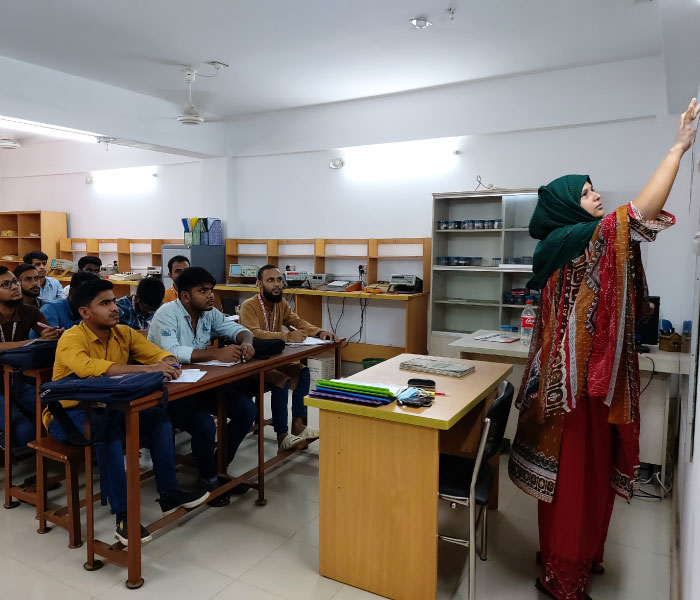
4. The Circuit Simulation Laboratory offers a wide range of pre-built circuit models, including discrete components, integrated circuits, and complex systems. The lab caters to students from various disciplines, including electrical engineering, electronics, computer science, and physics. Circuit simulation techniques find applications in a wide range of fields such as telecommunications, signal processing, power systems, control systems, and integrated circuit design. Students can apply their knowledge and skills to address real-world challenges in these domains.


5. The Energy Conversion Laboratory provides students with the opportunity to engage in hands-on experiments and projects related to energy conversion processes. Through these activities, students develop practical skills in system integration, measurement techniques, and troubleshooting. Our laboratory is equipped with a wide range of energy conversion systems and equipment, including generators, motors, transformers and inverters. This comprehensive infrastructure allows students to explore different energy conversion technologies, such as electrical, mechanical, and thermal systems.
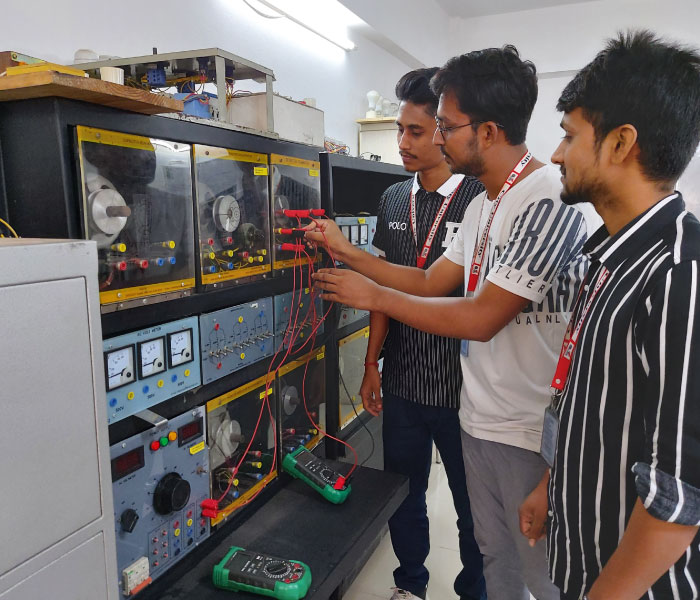

6. The Digital & Analog Electronic Circuit Laboratory is a state-of-the-art facility dedicated to exploring the principles, design, and analysis of digital and analog electronic circuits. Equipped with advanced tools and resources, our lab provides students with hands-on experiences and practical knowledge in the field of electronic circuitry. Our laboratory is equipped with a wide range of electronic components, measurement instruments, integrated circuits, and prototyping tools. This comprehensive infrastructure allows students to design, construct, and test digital and analog electronic circuits of varying complexities. The lab covers various aspects of digital circuit design, including logic gates, sequential circuits, arithmetic circuits, and digital system integration. Students learn to use tools such as logic analyzers.

